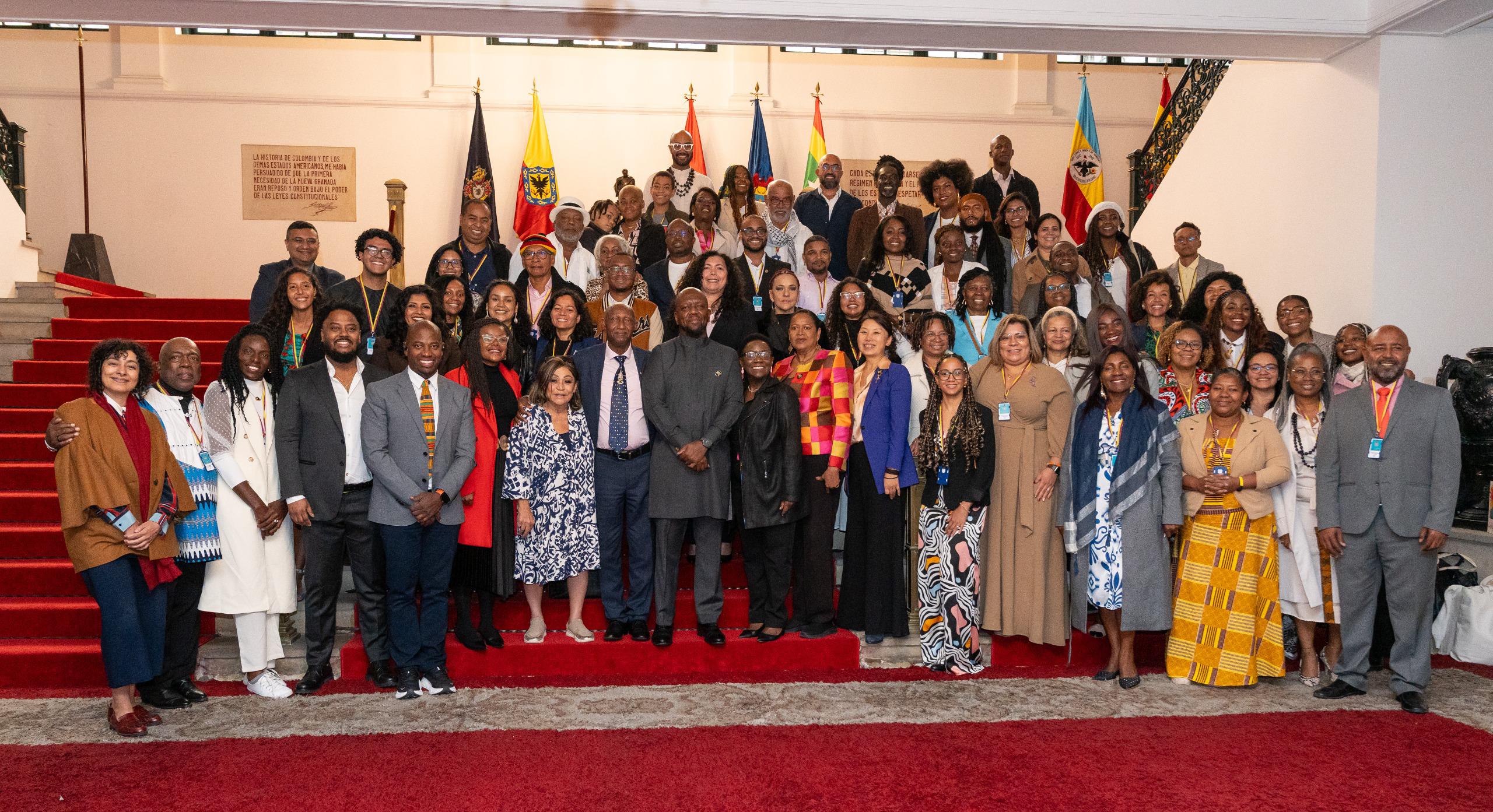Afro-descendant activists in the region condemn the effects of racism on Afro-descendant women
Five female leaders from Latin America and the Caribbean, along with Professor Justin Hansford, a member of the UN Permanent Forum on People of African Descent, participated in the discussion […]

-
Five female leaders from Latin America and the Caribbean, along with Professor Justin Hansford, a member of the UN Permanent Forum on People of African Descent, participated in the discussion “Voices of the Diaspora: Women of African Descent in Resistance and Global Leadership” on September 18 in Bogotá.
Bogotá, September 22, 2025.– Within the framework of the regional consultation of the UN Permanent Forum on People of African Descent, which brought together more than 60 Afro-descendant activists from Latin America and the Caribbean, the Institute on Race, Equality and Human Rights (Race and Equality) held the discussion “Voices of the Diaspora: Women of African Descent in Resistance and Global Leadership,” which took place on Thursday, September 18 in Bogotá.
The meeting brought together women leaders from different countries in the region, who shared experiences regarding the multiple forms of violence and discrimination faced by Afro-descendant women, as well as the strategies of community building and resistance that they have implemented.
The president of the Central American Black Organization (ONECA), Afrohonduran Mirtha Colón, highlighted the significance of strengthening cultural identity among members of the younger generation. The coordinator of the Network of Afro-Latin American, Afro-Caribbean, and Diaspora Women, Afrobolivian Paola Yañez, emphasized that “we cannot talk about racism without talking about sexism, because they are so intertwined.” Meanwhile, Afromexican Teresa Mojica, president of the Petra Morga Afro-Mexican Foundation, called for the promotion of an Afro-descendant, Afro-centered, intersectional, and decolonial agenda.
Afrodominican María Bizenny Martínez, coordinator of the Department of Human Rights and Political Advocacy at MOSCTHA, denounced discrimination and xenophobia toward the Haitian population, especially women. Meanwhile, Afrocolombian Luz Marina Becerra Panesso, legal representative of the Coordination of Displaced Afro-Colombian Women in Resistance (La Comadre), noted that the armed conflict in Colombia has exacerbated the vulnerability of Afro-Colombian women, many of whom remain silent out of fear.
After listening to the leaders, Professor Justin Hansford, member of the UN Permanent Forum on People of African Descent, highlighted the situation of Afro-Colombian women in Latin America and reiterated some of the recommendations raised by the activists during the discussion.
This dialogue offered a platform for collective construction and exchange, in which the voices of Afro-descendant women from the region and the diaspora illustrated the various ways in which racism and sexism affect their lives and reaffirmed their central role in the defense of rights and social development. It also served as a prelude for the activists, who also participated in the regional consultation of the UN Permanent Forum on People of African Descent, which was conducted on September 19 at the Colombian Foreign Ministry. They highlighted the need to visualize the reality of Afro-descendant women within the draft declaration, which is currently being developed by some members of the Forum.
Race and Equality remains committed to the promotion of initiatives and spaces that facilitate these types of meetings. Our objective is to continue to denounce the human rights violations experienced by Afro-descendant individuals in the region and to contribute to a world in which the dignity of all individuals is honored and all individuals have the opportunity to fully reach their potential.

